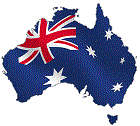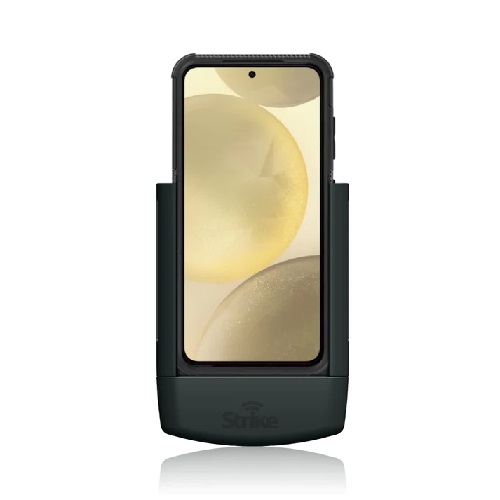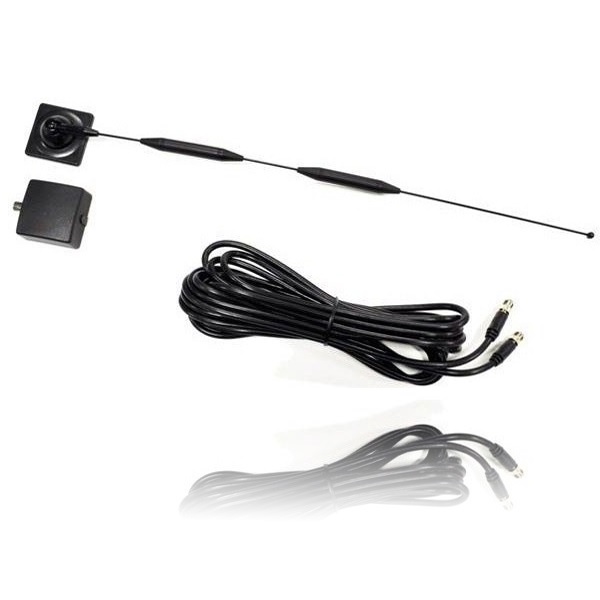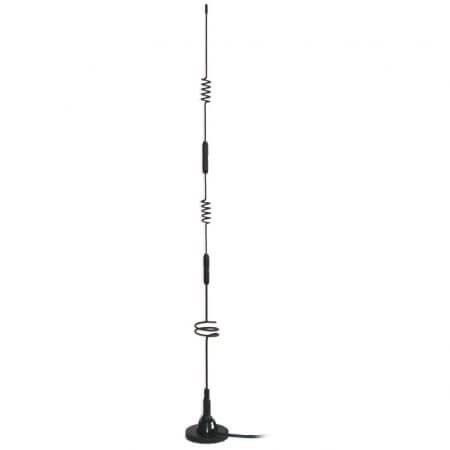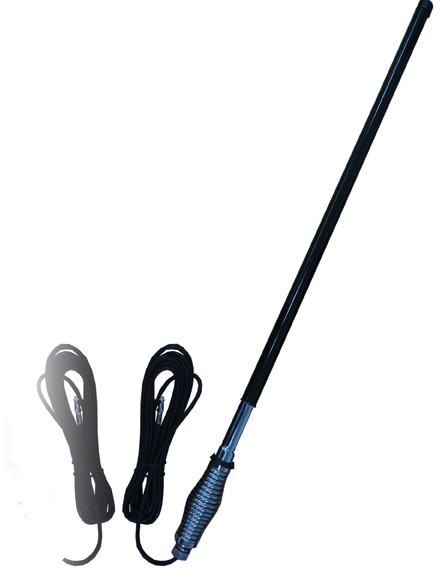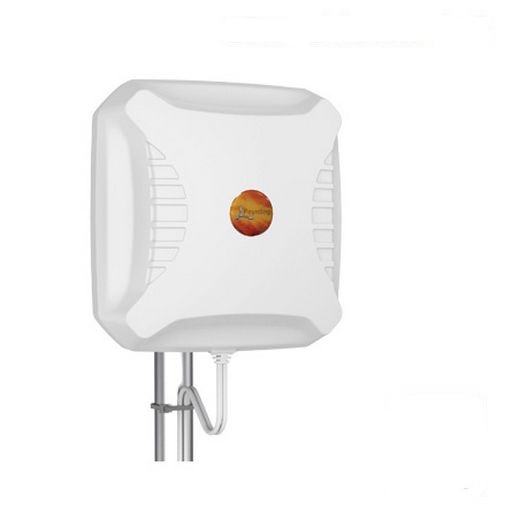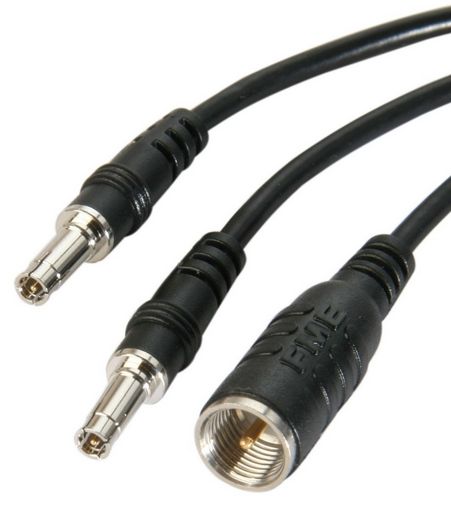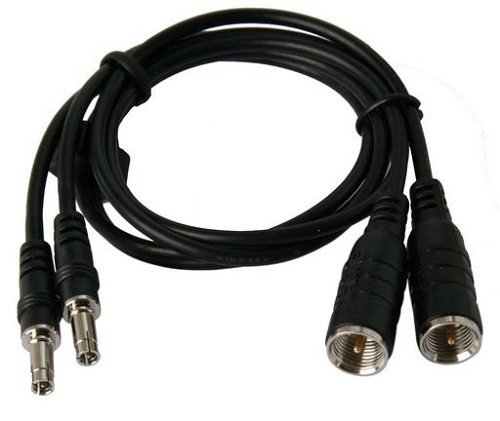Netgear AirCard Smart Cradle DC112A Patch Lead & Antennas

Below is a list of external antennas and patch leads for the Netgear AirCard Smart Cradle DC112A. To view more information about an item, click on the title.
Slow or patchy internet connections can make you really frustrated! Whether you are out in the countryside, perhaps it's very hilly where you live, or you just can't pick up a great signal, then you will know how irritating it is trying to get wireless broadband, either via your wireless broadband modem or via your mobile phone.
The Netgear AirCard Smart Cradle is designed specifically for use with Netgear's AirCard mobile hotspots. A popular and reliable choice for people around the country when it comes to wireless mobile internet, the Netgear AirCard is nevertheless not infallible. While you can take the mobile hotspot wherever you go - be it to work, out travelling, or just in the car, if you have patchy mobile reception where you are using the hotspot then you'll still find yourself irritated.
Patch leads and antennas for other Next G and BigPond wireless modems and data cards
Antennas
Our antennas include low loss cable and end in an FME fitting.
Patch Leads
The patch leads connect to the FME fitting on our antennas on one end and connect to your modem on the other end.
Extension Leads For Antennas
Need more length in your antenna's cable? Our extension leads are designed to provide a longer cable from your antenna to the modem.
| Picture | Item Title | Item Price | Buy It |
|---|---|---|---|

 |
Antenna Extension Cable 10m With Low Loss Cable |
$39.99plus shipping |
|

 |
Antenna Extension Cable 5m With Low Loss Cable |
$24.99plus shipping |
|
This is where the Netgear AirCard Smart Cradle comes in. The Smart Cradle is designed to maximise your reception, and provide a highly useful router for either the home or office using your AirCard mobile hotspot. Putting your AirCard in the cradle automatically gives you a wider range of functionality than the mobile hotspot alone.
The Smart Cradle offers extra 4G and 3G antennas built into the device, which help to extend the reception range of your AirCard. You can connect up to 20 different WiFi devices with the cradle, and you also have the option of physically connecting devices via 4 LAN ports at the back of the cradle. The two bunny ear antennas extend the Wi-Fi range of the mobile hotspot significantly, so you can have connected Wi-Fi devices further away, too.
The Netgear AirCard Smart Cradle really is smart, too. At the rear of the cradle, there are two connector pins, which allow you to plug in either 3G or 4G external antennas into the cradle.
Enhancing Your Wireless Broadband Internet With External Antennas
So, why would you want to plug in external 3G or 4G antennas into your Netgear AirCard Smart Cradle? Doesn't it already have a 3G and 4G antenna inside of it to enhance your reception? Well, the answer to this is that external antennas can make your reception even stronger. The larger and more powerful the antenna, the better your reception can be.
So, you can see why it makes sense to want to enhance your Netgear AirCard Smart Cradle with external antennas, if you are not in a great area of mobile broadband reception.
Choosing An External Antennas For Your Netgear AirCard Smart Cradle
In 4G areas, you will require two antennas to make the most of your mobile broadband connection. This is because the device is set up to use MIMO and Carrier Aggregation - which allows dual antennas to up to double your internet speed, as opposed to a single antenna, as well as use different frequencies on the same setup to get faster speeds. This MIMO technology is not available in all areas, so use Telstra's coverage map to check that you are located in a 4G or 4GX area, and not only in a 3G area.
If you are located in a 3G only area, then one antenna is adequate - you will receive no benefit in adding a second antenna. If you are only using one antenna then this needs to be connected to the port 1 on your Netgear AirCard Smart Cradle.
The type of antennas that you choose depends on your setup. You can choose roof mounted antennas for the best signal if your setup allows it, or window mounted antennas (or pointing out the window) if this is not possible. Try and find where the best signal is in your set up before placing your antennas in that spot.
For each antenna you then will need to choose between collinear (which grabs signals from everywhere) or yagi (which grabs a signal from a limited directional range) antennas. Yagi antennas will provide a better signal if stationary and directed properly. The higher the gain (dBi) of the antenna, the longer the signal reaches, however the more precise you will have to angle the antenna if it is a yagi antenna.
You may also need to think about how long the extension cables of your antennas are if you are planning on affixing them to the roof.
What Is A Patch Lead?
A patch lead is what you need to connect up an external antenna to your Netgear AirCard Smart Cradle. Antennas generally terminate in an FME connector, however the Smart Cradle doesn't offer an FME port. The port for the antenna on the Smart Cradle is a TS-9 connector. Hence, you will need a patch lead that plugs into the cradle's TS-9 connector as well as the FME connector on the antenna. You can buy patch leads as a single cable, or you can also pick up a dual patch lead, which is handy if you are going to be using two external antennas.
